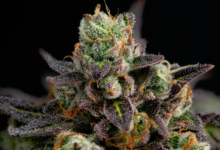
How Long Does Cbd Thc Stay in System
Understanding how long CBD and THC stay in the system is essential for users and those subject to drug testing. CBD typically remains detectable for a shorter duration, while THC can linger for weeks or even months. Various factors influence these detection times, including individual metabolism and usage patterns. To fully grasp the implications of these substances, one must consider the specific properties of each compound and the various testing methods employed.
Understanding CBD and THC: Overview of Their Properties
Cannabidiol (CBD) and tetrahydrocannabinol (THC) are two prominent cannabinoids found in the cannabis plant, each possessing distinct properties and effects.
CBD benefits include potential therapeutic effects such as pain relief and anxiety reduction, while THC effects can lead to euphoria and altered perception.
Understanding these differences is essential for users seeking to optimize their experience with cannabis for personal freedom and well-being.
Factors Influencing Detection Times
The duration that CBD and THC remain detectable in the system varies significantly based on several factors.
Detection methods, such as urine or blood tests, influence results, while metabolism differences among individuals can lead to varied elimination timelines.
Factors including frequency of use, dosage, and body composition also play critical roles in how long these substances stay detectable in the body.
How Long CBD Stays in Your System
While individual factors play a significant role, CBD typically remains detectable in the body for a shorter duration than THC.
Generally, CBD effects can last from a few hours to several days, depending on dosage impact, individual metabolism, and frequency of use.
Regular users might experience longer detection times, but overall, CBD is cleared more swiftly than its THC counterpart.
How Long THC Stays in Your System
THC, or tetrahydrocannabinol, can remain detectable in the body for varying lengths of time, influenced by several factors such as frequency of use, dosage, and individual metabolism.
Typically, THC metabolites can be identified in urine testing for 3 to 30 days, in blood tests for up to a week, and in hair follicle tests for up to 90 days, reflecting the complexity of THC metabolism.
Conclusion
In the intricate dance of cannabinoids, CBD flits away like a fleeting shadow, often gone within days, while THC lingers like a stubborn echo, leaving traces that can extend for weeks. The duration each compound remains in the system is influenced by a tapestry of personal factors, from metabolism to dosage. Understanding these nuances is crucial for anyone navigating the world of cannabis, ensuring informed choices in a landscape where timing and detection make all the difference.






